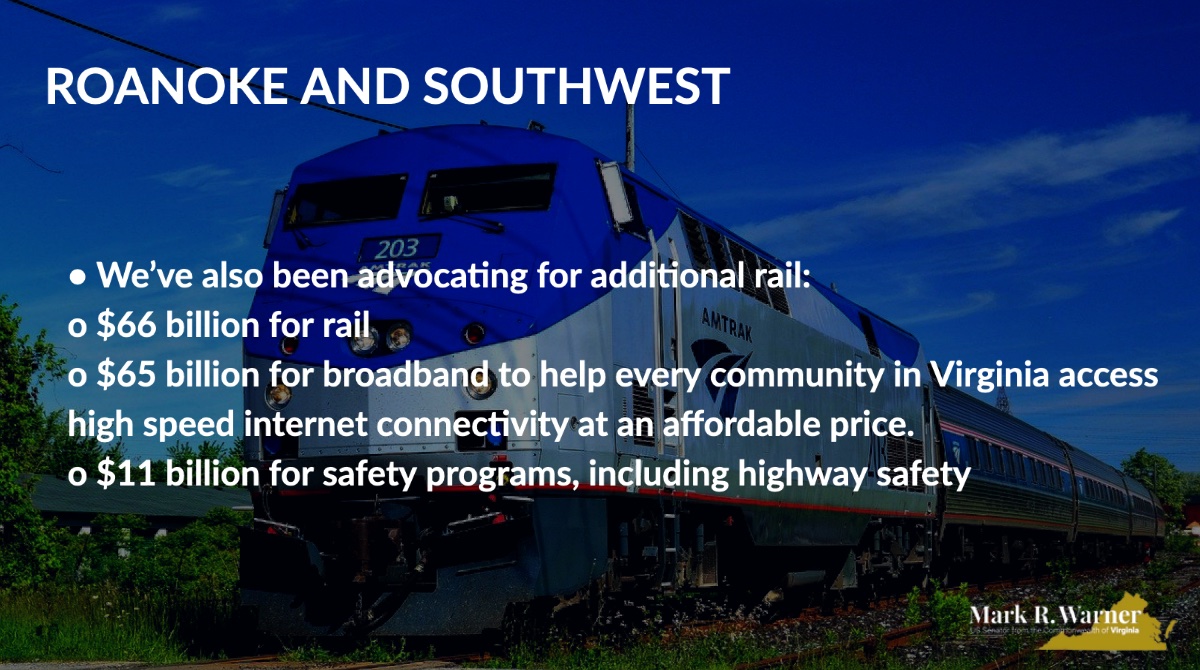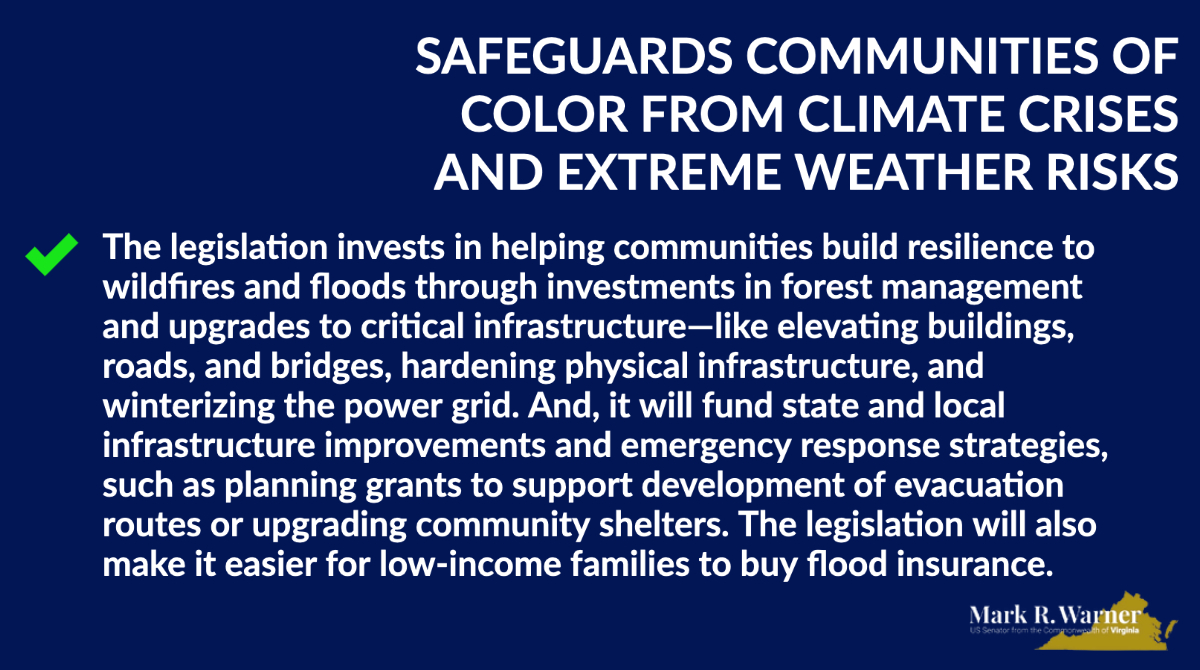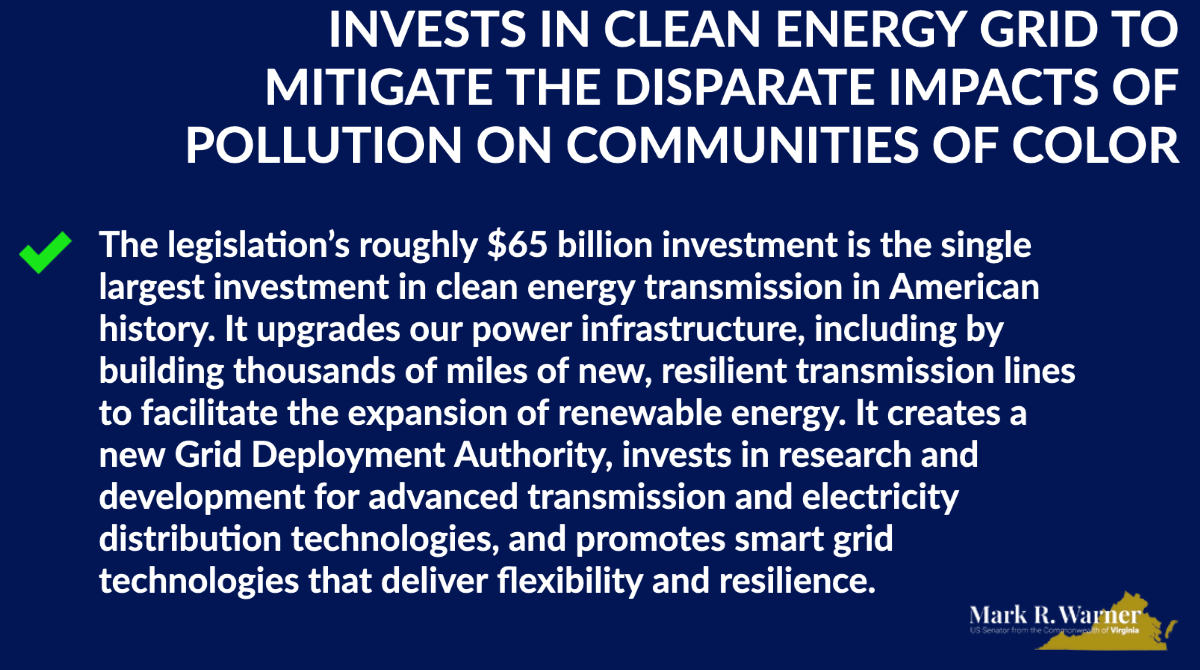
I’m glad that the Senate worked together in a bipartisan way to pass the Infrastructure Investment & Jobs Act. This bill will allow Virginia to make significant investments in infrastructure projects across the Commonwealth, including in HR, Richmond, NoVA, Roanoke and Southwest.
Hampton Roads:
- This bill will put $47B towards resiliency to help fund projects like flood mitigation and coastal resiliency. In Hampton Roads, we could use this funding for projects such as:
- This bill will put $47B towards resiliency to help fund projects like flood mitigation and coastal resiliency. In Hampton Roads, we could use this funding for projects such as:

Richmond:
- Last month I visited the Mayo Bridge, one of the 700 bridges across Virginia that are in an alarming state of decay. With $110 billion in funding for roads and bridges, we'll have federal dollars to put towards needed upgrades for bridges all across Virginia.
- Last month I visited the Mayo Bridge, one of the 700 bridges across Virginia that are in an alarming state of decay. With $110 billion in funding for roads and bridges, we'll have federal dollars to put towards needed upgrades for bridges all across Virginia.

NoVA:
- The rail investments in this bill could help further the historic Long Bridge project, which would improve the reliability of rail throughout Virginia.
- The rail investments in this bill could help further the historic Long Bridge project, which would improve the reliability of rail throughout Virginia.

Roanoke and Southwest:
- The $66B for rail gives us a shot at expanding rail across Southside and Southwest.
- Expanding broadband access has been a priority for me. This bill includes $65B for broadband that could supplement the $700M that @GovernorVA allocated from the #ARP.
- The $66B for rail gives us a shot at expanding rail across Southside and Southwest.
- Expanding broadband access has been a priority for me. This bill includes $65B for broadband that could supplement the $700M that @GovernorVA allocated from the #ARP.

I can't think of a bill that I have worked on that will have a more direct effect on the lives of every Virginian over the next 5 years – in terms of how you get to work or to school, how you manage to take the kids out on the weekends – than this record-setting $550B investment.
• • •
Missing some Tweet in this thread? You can try to
force a refresh









